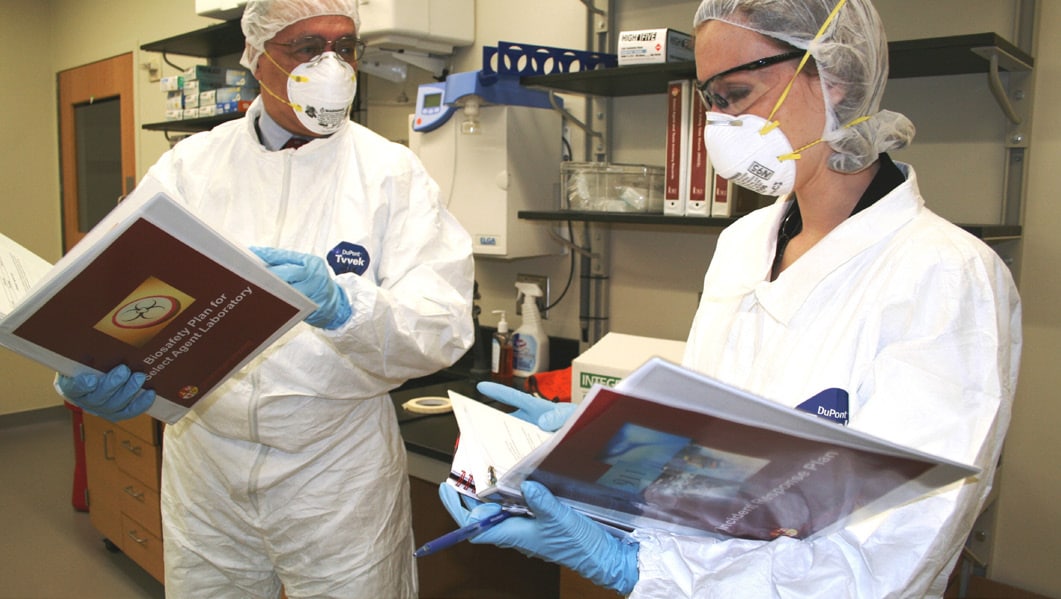Select Agents and Toxins: Keeping Lifesaving Research Safe and Secure
The Federal Select Agent Program (FSAP) regulates the possession, use, and transfer of biological select agents and toxins. This helps ensure that work with potentially dangerous and deadly pathogens and toxins is conducted as safely and securely as possible in the United States.

Scientific research is a critical part of our nation’s defense against naturally occurring diseases and intentional threats. Research leads to discoveries that save lives.
FSAP is managed through CDC and USDA’s Animal and Plant Health Inspection Service (APHIS). CDC regulates those select agents and toxins that cause disease in humans. APHIS regulates those that can cause disease in animals and plants
FSAP regularly inspects laboratories registered with the program. It uses a standardized checklist to ensure compliance with regulatory requirements.
Laboratory research with select agents and toxins can lead to important breakthroughs in vaccine development, drug therapies, and diagnostic testing for the deadly diseases caused by these agents. This work can carry risk. The U.S. has regulations in place to make sure it is done as safely and securely as possible.
FSAP regulates 68 select agents and toxins and the laboratories registered to handle them. FSAP publishes Federal Register Notices, policy statements, regulatory interpretations, and guidance documents to help laboratories comply with regulatory requirements when working with these agents.
Scientific Expertise
Through FSAP, CDC brings together experts in microbiology and other life sciences, and biosecurity. These experts know what to look for and how to apply regulations to a variety of laboratory settings.
Guidance and Oversight
FSAP requires laboratories to implement biosafety and security measures to prevent select agents and toxins from being stolen, lost, or accidentally or intentionally released. Incidents of concern could include laboratory-acquired infections (for example, through a needle- stick, spill, or animal bite) or the loss of inventory.
If such incidents do occur, FSAP follows up with the laboratory to ensure they take the proper mitigation and containment actions and notify the appropriate authorities. These actions help the laboratory identify ways to prevent the incident from happening again.
Since the beginning of the program in 2003, there have been no confirmed thefts of a select agent or toxin from a registered entity. There have been no deaths among laboratory workers or reported cases of illness or death among people in the surrounding communities due to working with these agents in regulated labs.
Behind the Clipboard: Laboratory Inspectors
CDC’s laboratory inspectors keep tabs on the nation’s critical select agent and toxin laboratories. Laboratory inspections last about three days and require that inspectors travel to sites all over the country. They go out about once a month. Their job is never dull.
Every lab is different. Some labs keep animals on the premises. Others are huge sites that mimic the factories that process our food supply. It’s the inspectors’ job to make sure that, no matter what’s happening in each lab, the work with select agents and toxins is conducted safely and securely. “You have to figure out how the regulations apply to every situation,” an inspector notes, “no matter how unique it is.”
“I think the impact of our work is important to talk about,” says another inspector. “It allows important research to be done. Research that involves risk. Our job is to allow this work to continue with as little risk as possible.”
